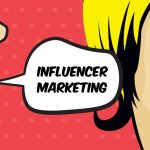By Lucia Moses
Audience development pros have become critical to how publishers reach new readers and make money. But now that Facebook is all but turning off publishers’ reach in the news feed, audience development groups feel both vindication and new pressures.
For many, there’s a sense of relief and triumph. The role of audience development is often misunderstood as posting links to social platforms. Now, suddenly, audience development is seen as far more strategic. But with great power comes great responsibility.
For Kurt Gessler, deputy digital editor at the Chicago Tribune, there was “panic initially,” followed by vindication and, he allowed, “a little smugness.” That’s because the Tribune only posts about 10 percent of its content on Facebook, and its audience development experts do other tasks in the newsroom so they’re not isolated or working at cross-purposes with editorial.
“It reinforces a lot of the things we and others have been saying,” Gessler said of the news feed change, which Facebook said will prioritize users’ posts over news. “We were always much more interested in quality over quantity. We were never firehosing into Facebook.”
Arguably, the role of audience development — some prefer the fancier “audience engagement” — is more important than ever. The old time-tested practice of using Facebook to drive massive traffic on the cheap to build audiences and fulfill ad campaigns is going away. Building audience in a sustainable way means mastering other distributed platforms and getting direct traffic, too.
One audience exec at a major publisher likened the algorithm change to “the end of an abusive relationship. Facebook abused us for so long and we just kept going back to them, and you finally are like, ‘OK, I’m going to walk away.’”
“I think this gives them more freedom to not worry about the click but think about the engagement,” Keith Hernandez, svp of strategy at Bleacher Report, said of audience development teams. Audience development’s importance at the sports publisher has already been growing; the branded content team has been bringing audience staffers into its pitch meetings for the past six months to advise on editorial trends.
If audience people are more important, they also face more insecurity and pressure than ever. Some will have to answer for their reliance on Facebook. (Cue the schadenfreude among publishers that say they saw the writing on the wall and already weaned themselves off Facebook dependence.) They’re aware that some people think their jobs could be done just as well by tweet-writing robots. They have to figure out new rules for success at a time when Facebook reach is declining.





